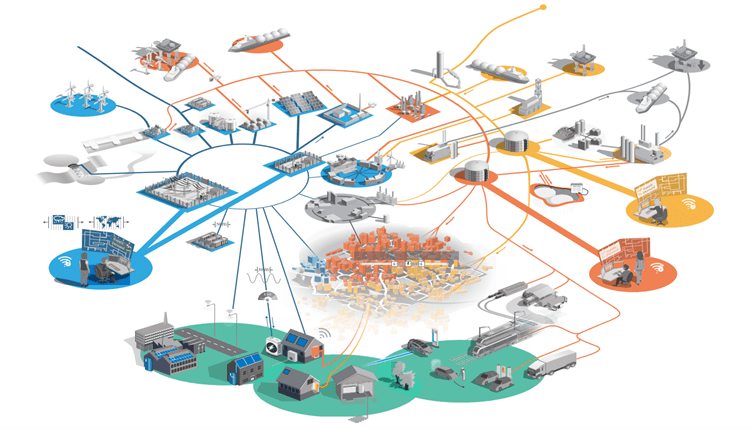
Written by Ankit Patel, Senior Project Manager, Marie Cavanagh,Project Manager, and Doug Chisholm, Director, based in the Project and Programme Management, Energy Sector, Arup UK
For this special feature article, PMG is welcoming the Energy team from the international sustainability firm Arup, as it opens it’s doors on the work that it is leading to create the infrastructure for a new generation of Energy technologies. We hear from those at the centre of a sector that will be delivering the Energy projects that will change our existence on this planet as we know it!
The world in which projects are delivered is rapidly evolving. Technological advancements, changing climates, globalisations and geopolitical uncertainty are just some of the backdrops that projects will both emerge from and need to react to. Transition away from fossil fuels towards cleaner energy systems is a critical concern across society.
This means that global, national and local energy systems of the future will be different to the past, but how exactly remains to be established. Pathways are being developed and electrification is key. Project management provides valuable and essential vehicles for making changes to our energy systems, putting project professionals at the centre of shaping the future.

In this short paper we start to look at what skills and techniques project managers will need to have to deliver new and innovative infrastructure projects delivering clean energy transition.
Thought leadership work on the transition has highlighted the challenge we face and criticality of the project management profession for delivering clean power targets. A recent report by the NEPC describes how management of the clean power programme, and the many projects across it, will be a critical bedrock of delivery[1]. The pathways to a digitalised energy system 2035 report[2] conveys the scale of the challenge, making a call to action for greater collaboration to enable digitalisation of the system. Ultimately, the challenge of achieving a clean energy system will need digitally capable and driven project management skills.
Attempts to capture what the future system will look like demonstrates not only the scale of the challenge but the variety of system components that will need to be delivered at scale, through thousands of projects, both well-established technologies and those at the cutting-edge.
This global change transformation from traditional energy systems to clean energy requires the methodologies and approaches to project management that incorporate the best in technologies and remains flexible to incorporate changes to constantly improve. The type of projects that meet these requirements are typically referred to as ‘innovative’ with a varying level of uncertainty.
For project managers working at this cross-section of energy transition and project management, considering how the discipline must innovate is both critical and complicated. As project managers broaden approaches from traditional waterfall-based projects, they will develop new skills and capabilities to deal with high uncertainties. This uncertain landscape makes the role of a project manager even more important and challenging, especially in the context of achieving the pace of change needed for a Net Zero society. Although the best solutions to a net zero energy world are still being developed, the need for change is certain and society is looking for project management to deliver.
Currently we have project management methodologies to manage high uncertainty projects, which include:
· Agile project management
· Lean project management
· Managing successful projects
Additionally, technological advancements, such as artificial intelligence (AI), automation, and the Internet of Things (IoT), are fundamentally altering the way projects are managed. AI, for instance, can be used to optimize project scheduling, improve risk management, and enhance decision-making, allowing the project manager to be more of a trusted advisor for their project teams. For example, a project manager for a project related to improving the cyber and physical security of an energy asset with a base level information on the subject can ensure a successful integration of the cyber and physical security, with other aspects such as operations, maintenance, etc.
Project management professionals will find that this changing landscape presents both opportunities they can seize but, they will also require a growing awareness and skillset to manage the interrelated risks. This includes mastering modern tools like Jira and DevOps, honing problem-solving abilities, and gaining deep domain and subject knowledge about the project in question. For innovative and uncertain projects, especially in emerging fields like Carbon Capture and Storage or Hydrogen, subject matter expertise will be a high value-add to the project team. Well defined contingencies will also provide assurance both for Project Manager and their clients / customers.
Learning and improving these skills and capabilities will help projects managers with:
· Navigating complex challenges: Projects often encounter unexpected obstacles, especially ones with high uncertainty. Effective problem-solving, tied in with subject and domain knowledge, enables managers to identify root causes, develop creative solutions, and minimise disruptions through effective brainstorming and team integration.
· Making informed decisions: Project managers make hundreds of micro decisions through a project lifecycle. Critical thinking helps to understand the context of the problem, evaluate potential options, and make sound judgments under pressure.
· Adapting to change: The project environment is dynamic. By anticipating potential issues and developing contingency plans, managers can proactively address changes and keep projects on track.
Projects are, of course, team efforts and diversity is an important factor in the effectiveness of a team to navigate complexity, make good decisions and manage change. Diversity has many aspects and opens a whole new topic to explore. In fact, a project team that has a diversity of thinking and experience may be better able to spot opportunities for achieving more sustainable outcomes from energy transition projects.
As well as being able to select and deploy a range of project management skills and techniques, project managers’ effectiveness is also enhanced by domain knowledge. This enables them to appreciate the underlying challenges to be overcome and what other specialist skills they need to bring in and integrate. At Arup we have developed training modules for project managers giving them insights to the energy sector. This is a great way to start to gain deeper understanding that comes from immersion in the sector.
Energy systems are often national with international links and local delivery, and therefore governments have a leading role to play. For example, in the UK the Government’s Department for Energy, Security and Net Zero has commissioned a consortium of Arup, Energy Systems Catapult and the University of Bath to investigate the feasibility of a ‘digital spine’ for the energy system. Project management involved capturing the cumulative thinking of the diverse consortium and over 100 individuals and cross-sector organisations. This is one of many examples where project managers from Arup and other organisations are contributing to providing secure and resilient data which is a vital component in the decarbonisation of Great Britain’s energy system.
For the energy transition the coupling of technical domain knowledge with project management expertise will be critical to success of the overall mission to deliver clean energy for the UK.
Authors:
Marie Cavanagh, Marie started working at Arup as a Project Manager after graduating from UCL with a degree in Sustainability. She specialises in the management of Projects and Programmes which focus on the Energy Transition. Marie also has a keen interest in climate action and sustainable development. She is currently working on the Hy4Heat & Hy4Transport projects.
Ankit Patel, Ankit is a Chartered Project Professional with over 13 years of experience. His career has been driven by a deep-seated belief in creating a sustainable future. At Arup, he works with organizations achieve their Net-Zero goals through digital product development, recommending strategic investments, and effective program integration.
Douglas Chisholm, Douglas is a Director in Project and Programme Management, based in London. His future focus is on the Energy market and is excited to be part of Arup’s response to shaping better sources of energy and the transformations this will need. His contributions have enabled the transformation to cleaner energy quickly and effectively through programme management.
For more information on the work the team at Arup are involved in, please contact them directly through their LinkedIn Contacts, or via the Arup contact page.
[1] Rapid decarbonisation of the GB electricity system | Strategy recommendations (raeng.org.uk)
Swanwick House, 22 Towcester Road, Old Stratford, Milton Keynes, MK19 6AQ, UK
© 2025 Project Management Global. All rights reserved | Privacy Policy